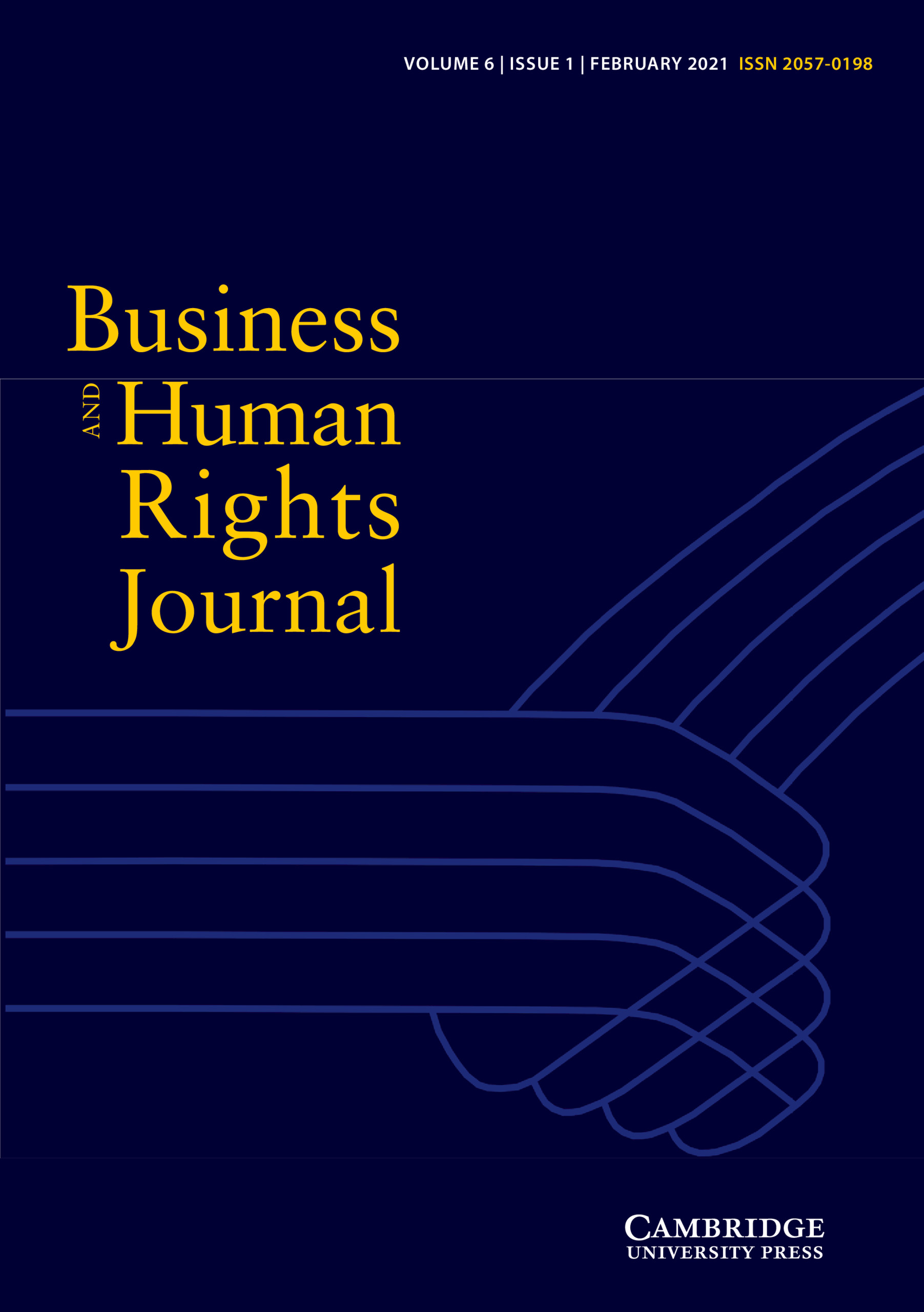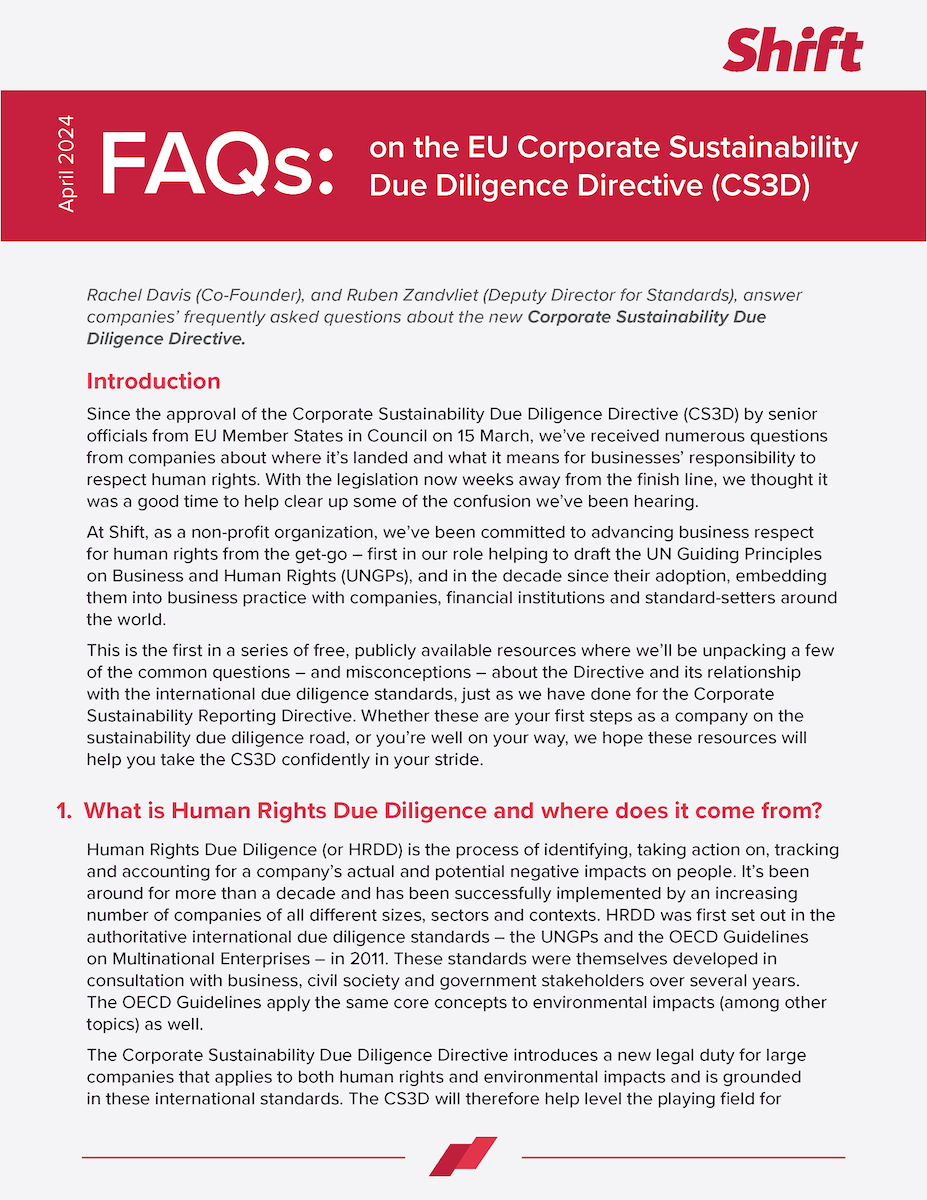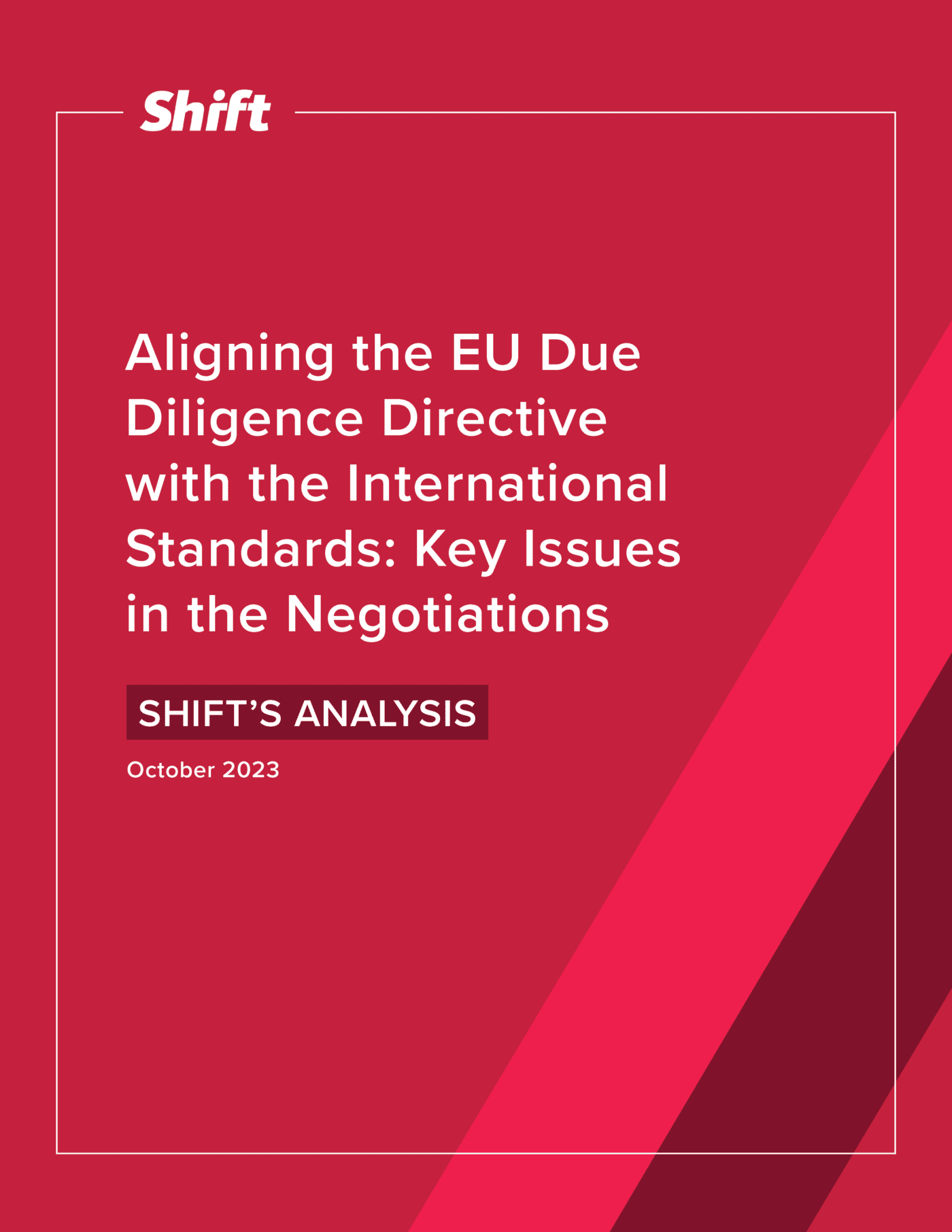Ten years on from the UN Guiding Principles, the soft law of human rights due diligence has helped provide a path beyond shareholder primacy towards stakeholder governance. This is now influencing hard law, particularly in Europe. In this paper, Shift’s Chair, Professor John Ruggie, and our two co-founders, Caroline Rees and Rachel Davis explain the journey.
The paper is divided into five parts. The first recaps the current debate regarding the purpose of the corporation, which centers on whether and how stakeholder governance should and could supersede shareholder primacy. The second provides a brief backstory on shareholder primacy versus stakeholder governance. The third introduces the elements of HRDD and demonstrates that even in its soft law form it is bringing stakeholder concerns and corporate practice into closer alignment. Section IV describes how this experience with soft law is informing national and supranational legal requirements in a growing number of jurisdictions, with knock-on effects for corporate governance. The conclusion endeavors to draw some lessons from how, a mere decade after UN endorsement of the Guiding Principles, they have turned the idea that companies are responsible for preventing and addressing adverse impacts of their business on people’s basic dignity and equality into a mainstream proposition with significant implications for corporate governance while acknowledging that large gaps remain in the BHR space.




